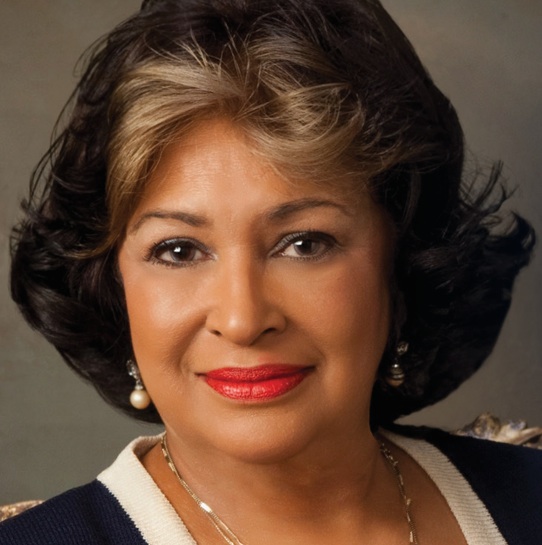Jackson State University President Carolyn W. Meyers honored 19 JSU researchers for securing the top-funded projects during the FY 2013-2015 during an April 24 reception at her home.

“You are pushing the boundaries of now, which are the hallmarks of a great university. I am thrilled today because JSU is a challenging place with challenging people. I celebrate your efforts and the impact that your research is having on not just our students but this entire university,” Meyers said.
According to Dr. Loretta A. Moore, vice president for Research and Federal Relations, these researchers collectively brought in more than $45 million in sponsored research during those fiscal years.
The Division of Research and Federal Relations works with faculty and staff to identify funding opportunities and to secure externally funded grants, contracts and cooperative agreements, Moore explained. The Sponsored Programs Unit is the centralized unit within the Division charged with coordinating research and sponsored program activities campus-wide. The Unit identifies funding opportunities, coordinates proposal and budget development, and assists with project implementation and management.
“Some of the agencies that support our efforts at JSU include: National Science Foundation, National Institutes of Health, Department of Defense, U.S. Department of Homeland Security, U.S. Department of Education, Mississippi Department of Education; and organizations such as the Kellogg Foundation and the David and Lucile Packard Foundation,” Moore said.
Dr. James C. Renick, provost and senior vice president for Academic and Student Affairs, said he is proud of the researchers as he announced their names during the presentation of trophies.
The honorees are:
Shahrouz K. Aliabadi, Ph.D.
Northrop Grumman Professor of Engineering, Department of Electrical and Computer Engineering, College of Science, Engineering and Technology
Aliabadi’s areas of expertise are computational aerodynamics, computational fluid dynamics, high performance computing, parallel processing, finite element method, finite volume method, mesh generation, and flow visualization. He is the director of the Northrop Grumman Center for High Performance Computing of Ship Systems Engineering. In addition to the support of Northrop Grumman, High Performance Technologies Inc. and the U.S. Department of Defense, NASA EPSCoR, and the U.S. Nuclear Regulatory Commission have supported Aliabadi’s work.

Donna A. Antoine-Lavigne, M.P.H., Ph.D.
Principal Investigator, Jackson Heart Study Community Outreach Center, College of Public Service
Antoine-Lavigne’s research interests include the impact of community engagement on African-American engagement with biomedical research, cardiovascular disease, obesity, and social determinants of health. She has served as principal investigator on community engagement grants with the Dana Farber Cancer Institute, JSU Center of Excellence in Minority Health and Health Disparities, JSU Institute of Epidemiology and Health Services Research, University of Alabama at Birmingham, and University of Michigan. She has extensive experience as an administrator in state and community health centers including with the Mississippi Department of Mental Health and Jackson-Hinds Comprehensive Health Center.
M. Edwina Barnett, M.D., Ph.D.
Interim director, RCMI Translational Research Network-Data Technology and Coordinating Center (RTRN-DTCC)
Dr. Barnett serves as the interim director for the RCMI Translational Research Network-Data Technology and Coordinating Center. Under Barnett’s leadership, the Data Coordinating Center at JSU continues to support the RCMI Network through the development and application of data management and data sharing tools; staff, hardware and software for collection, analysis, storage and exchange of clinical data for the multi-site studies. Barnett’s expertise is nephrology, a specialty of medicine and pediatrics focused on the study of normal kidney function, kidney problems, the treatment of kidney problems, and renal replacement therapy. The Consumers’ Research Council of America named Barnett as one of America’s Top Physicians in 2007 and 2008.

Deborah F. Dent, Ph.D.
Vice president of Information Technology and chief information officer
Dent joined JSU after a 37-year career with the U.S. Army Corps of Engineers, where she won several awards, including: induction into the Gallery of USACE Waterways Experiment Station Distinguished Employees (2014); U.S. Department of the Army Meritorious Award for Civilian Service (2008); and was recognized by the Mississippi Business Journal as one of Mississipp’’s 50 leading business women (2007). Since joining JSU, her accomplishments and achievements include updating JSU’s wireless infrastructure, co-facilitating the iPad Scholars Program for first-time freshmen, revitalizing the campus enterprise resource program, and initiating a new IT strategic plan. Dent recently received funding from the U.S. Army Engineer Research Development Center.
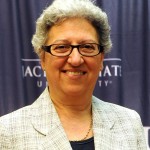
Mehri Fadavi, Ph.D.
Interim chair and professor, Department of Physics, Atmospheric Sciences and Geoscience, College of Science, Engineering and Technology
Fadavi’s research interests include solar activities and their relation to climate change, searches for super nova and asteroids, and observation technology. She has also devoted her attention to building instructional and research infrastructure in astronomy for JSU students and enhancing teaching effectiveness and integration of technology in the classroom of K-12 science teachers. Currently, she is the project director of two major grants: Project IC FAIM – Institutional Change through Faculty Advancement in Instruction and Mentoring (National NSF HBCU-UP) and Project MAT-PD – Mathematics Advancement in Teaching through Professional Development (MDE). Fadavi has served as principal investigator or co-principal investigator on grants funded by the National Science Foundation, Mississippi Department of Education, the U.S. Department of Education, the David and Lucile Packard Foundation, and the NASA.
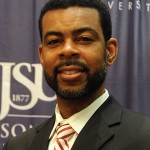
Ashton T. Hamme, II, Ph.D.
Professor, Department of Chemistry and Biochemistry, College of Science, Engineering and Technology
Hamme’s research focuses on the synthesis and derivatization of naturally occurring anti-cancer compounds and the detection and quantification of bacteria through functionalized nanoparticles. He has conducted industrial research using medicinal chemistry to co-invent more than 10 patents. He has been a principal investigator on externally funded research grants from the Central Mississippi Steel Magnolias Affiliate of Susan G. Komen for the Cure, National Institute of General Medical Sciences, and National Science Foundation. He is the co-principal investigator of the Louis Stokes Mississippi Alliance for Minority Participation (LSMAMP), an undergraduate student program funded by the National Science Foundation. In 2012, Hamme received the One JSU Teacher of the Year Award and, in 2013, the JSU Outstanding Faculty of the Year HEADWAE Award from the state of Mississippi.
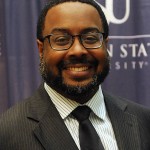
Glake Hill, Ph.D.
Associate professor, Department of Chemistry and Biochemistry, College of Science, Engineering and Technology
Hill’s research is focused within the areas of theoretical and computational chemistry, where he develops tools that will provide accurate information about relatively large systems. Applications of his work include characterization of biosystems and nanomaterials and evaluation of metals as possible drugs to treat a variety of diseases. His work has been published widely including in Chemical Physics Letters, International Journal of Quantum Chemistry, Journal of Computational Chemistry, Journal of Molecular Modeling, Journal of Physical Chemistry, and Structural Chemistry. Hill is the principal investigator for a NIH RISE grant that utilizes undergraduate-graduate student teams to train students as research scientists in chemistry and biology and encourage them to pursue doctorate degrees. He is also co-principal investigator of a Mississippi EPSCoR project.
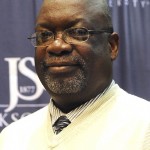
Tor A. Kwembe, Ph.D.
Professor and chair, Department of Mathematics and Statistical Sciences, College of Science, Engineering and Technology
Kwembe’s broad research interests include classical analysis, ordinary and partial differential equations with the Wentzell or dynamic boundary conditions, and biomathematics including the modeling of disease and physiological disorders. His current research focuses on developing formal mathematical and statistical theories for — and applications to — genome science and climate and tropical cyclone/hurricane forecasting using quantitative exploration of real-time data. As an educator, Kwembe has designed programs to integrate technology and undergraduate research into instructional practices to facilitate student learning. Kwembe has been awarded funding from the Mississippi Institutes of Higher Learning, National Institutes of Health, National Science Foundation, Pearson, Texas Instruments, and the U.S. Department of Energy.
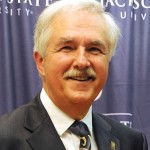
Jerzy Leszczynski, Ph.D.
Professor and President’s Distinguished Fellow, Department of Chemistry and Biochemistry, College of Science, Engineering and Technology
Leszczynski’s research and contributions to his field of computational quantum chemistry include: the discovery that amino groups in DNA base are nonplanar which facilitate various types of interactions vital for DNA stabilization, development and application of novel and efficient methods to study nanomaterials, and detailed computational investigation of the interactions of nanospecies with biological species. The president of the Polish Republic awarded Leszczynski the honorific title of professor in 2010. He was also awarded the White House Millennium Award for Teaching and Research Excellence in Mathematics, Science and Engineering (2001), the Maria Sklodowska-Curie’s Medal from the Polish Chemical Society (2007), and Presidential Award for Excellence in Science, Mathematics, and Engineering Mentoring (2009). Recently, Leszczynski was named to the U.S. Environmental Protection Agency Board of Scientific Counselors. Leszczynski is the director of the National Science Foundation-funded Interdisciplinary Nanotoxicity CREST Center.

Earnestine McNeal-Brown
Director, Interdisciplinary Alcohol and Drug Studies Center, College of Liberal Arts
McNeal-Brown’s research interests include public health, sexuality, criminology and sociology. Through her work in these areas, she has built strong linkages with community providers of prevention and rehabilitation services. Mrs. McNeal Brown currently serves as director of the Interdisciplinary Alcohol and Drug Studies Center; she has also served as principal investigator or co-principal investigator on multiple grants dealing with substance abuse.
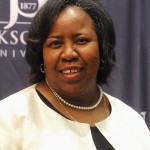
Loretta A. Moore, Ph.D.
Professor, Department of Computer Science; vice president, Division for Research and Federal Relations
Moore’s research interests include cyber security, computational thinking, intelligent systems, visual analytics, open source software development, human computer interaction, computer science education and research experiences, and broadening participation of the nation’s workforce. She is the principal investigator for JSU ADVANCE, a project with an overall purpose to transform the institution’s climate to promote equal opportunities for the advancement of all faculty. Recently, she has served as principal investigator for Students Promoting Interest in Computing Supported by Educational Scholarships (SPICES) and Advancing Computational Thinking and Computing innovators in a Cyber-Enabled Community as well as co-principal investigator for the Computational Thinking as an Approach to Refining the Critical Thinking and Analytical Reasoning Skills of Undergraduates at an HBCU and Incorporating Systems Security projects. During her academic tenure, Moore has served as principal investigator or co-principal investigator a number of grants and contracts. The granting agencies include the Jacobs Technology, Lawrence Livermore National Laboratory, NASA, National Science Foundation, U.S. Department of Homeland Security, U.S. Department of Justice and several foundations.

Marinelle Payton, M.D., Ph.D.
Professor of Epidemiology, assistant dean for Research and Program Development, College of Public Service
Most of Dr. Payton’s research is focused on health disparities and epidemiology. As founding chair of the Public Health Program, Payton led the design and implementation of the only accredited doctorate of public health program in Mississippi and facilitated development of the research infrastructure that will undergird the first School of Public Health in Mississippi. She is director and principal investigator of the Institute of Epidemiology and Health Services Research (Centers for Disease Control), Center of Excellence in Minority Health and Health Disparities (NIH-NIMHD), and the Mid-South Transdisciplinary Center on Health Disparities (NIH-NIMHD). As principal investigator, she designed multiple junior faculty development programs: Health Disparities Research Training and Education Program (NIH-NIMHD), Pilot Research Grants Program (NIH-NIMHD), and Summer Career Development Institute in collaboration with the University of Pittsburgh (NIH). Payton is the director and principal investigator of the Jackson Heart Study Graduate Training and Education Center and is principal investigator for the Daniel Hale Williams Scholar Program (NIH-NHLBI), Summer Obesity Research Training Program (NIH-NIMHD), and Scholarships for Health Professions’ Program (U.S. Department of Health and Human Services).
Paresh Chandra Ray, Ph.D.
Professor, Department of Chemistry and Biochemistry, College of Science, Engineering and Technology
Ray’s research is focused at the nexus of chemistry and biology exploring new chemical strategies for imaging and therapy of cancer cells, creating new nano-based sensors for chemical and biological toxins, designing multi-functional nanomaterials for multimodal imaging, and enhancing our understanding of biomolecular interactions with nanosurfaces. He was the recipient of the 2014 Mahatma Gandhi Pravasi Samman Award. He holds one pending U.S. patent, and Ray was recognized as an innovator by the state of Mississippi and JSU. He currently serves as program director for the JSU Partnership of Research and Education on Material Science Program and the JSU Research Experience for Undergraduates (REU) Program, both of which are funded by the National Science Foundation. Over the last 10 years, Ray has served as principal investigator or co-principal investigator on projects cumulatively funded with more than $13 million. The National Institutes of Health, National Science Foundation, Universal Technology Corporation, U.S. Department of Defense, and U.S. Department of Homeland Security are some of the agencies that have funded Ray’s research.
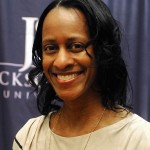
Jacqueline Stevens, Ph.D.
Associate professor, Department of Biology, College of Science, Engineering and Technology
Stevens conducts research in gene expression and carcinogenesis and publishes widely, including in the International Journal of Environmental Research and Public Health, Journal of Cellular and Molecular Biology, and Meta Ions in Biology and Medicine. Recently, she was accepted to the NSF-Funded Chicago School of Professional Psychology’s Post-Graduate Certificate Program in Academic Leadership. Stevens is the program director for Minority Access to Research Careers (MARC/U*STAR), which provides research training and experiences to students working with faculty in biology, chemistry, and psychology. She has also been a co-principal investigator on multiple NIH-NCRR RCMI grants.
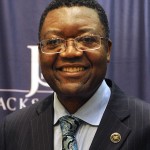
Paul B. Tchounwou, Sc.D.
Professor and Presidential Distinguished Professor, Department of Biology, associate dean, College of Science, Engineering and Technology
A recipient of the White House Millennium Award for Teaching and Research Excellence in Mathematics, Science and Engineering (2003), Tchounwou has also received other awards and honorifics: life membership in the scientific faculty of the International Biographical Institute (Cambridge, England); National Role Model Award for Exemplary Achievements in Mentoring, Counseling and Guiding Others; AACR Faculty Scholar Award for Cancer Research; and International Order of Merit for Superb Contributions to Biomedical Sciences. The NCRR Reporter magazine of the National Institutes of Health recently highlighted his work on arsenic trioxide pharmacology and toxicology. He has published 178 papers in refereed journals and books and serves as editor-in-chief of the International Journal of Environmental Research and Public Health and Environmental Toxicology: An International Journal. Tchounwou is the director of the Center for Environmental Health (NIH RCMI), director of the Center of Excellence in STEM Education (U.S. Department of Defense), and director of the Environmental Science Doctoral Program.
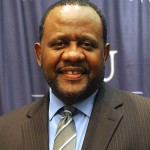
Daniel Watkins, Ph.D.
Dean, College of Education and Human Development
Watkins has more than 12 years of real-world experience in nearly all facets of K-12 education. He has served as a teacher, assistant principal, and principal and school district superintendent. He also brings to the position of dean extensive post-doctoral training in educational leadership praxis including leadership institutes at Harvard and Howard. Watkins is one of only 30 national members of Teachers for a New Era. He has served as project director of the Delta Teacher Development Initiative and principal investigator on several externally funded projects including the Beyond the Bricks Program, Improving Teacher Quality Program, Jackson Public Schools Leadership Grant, Leadership Development Academy Project, and Teachers for a New Era Learning Network. Among recent grants under his management are America Reads — Mississippi, Call Me Mister and Educational Achiever.
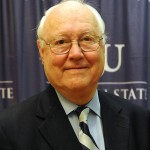
Robert W. Whalin, Ph.D.
Professor, Department of Civil Engineering, College of Science, Engineering and Technology
Whalin’s research interests focus on breakwaters, hurricane surges, tsunami inundation, near-shore wave transformations and engineering education. He brought to JSU more than 30 years of experience and leadership in the Army Research Laboratory and U.S. Army Corps of Engineers Waterways Experiment Station. During this period, he was awarded Meritorious Executive Presidential Rank Award in 1987 and 2002 and the Distinguished Executive Presidential Rank Award in 1994. Currently, Whalin is the director and principal investigator for the competitively awarded Coastal Hazards Center of Excellence, an education-focused Center of Excellence funded by the U.S. Department of Homeland Security. Whalin also serves as the director of Education for the University of North Carolina Coastal Resilience Center of Excellence with which JSU is the major partner for education.
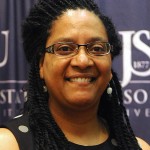
Velesha P. Williams
Director, Metro Jackson Community Prevention Coalition, Office of Community Engagement
A certified prevention manager and prevention specialist, Williams has more than 25 years of leadership and management experience and has been engaged in substance abuse prevention for 19 years. Her contributions to the field were acknowledged when the Mississippi Association for Addiction Professionals named her as the Prevention Professional of the Year (2014) and the Mississippi School for Addiction Professionals awarded her the Herbert L. Loving Award of Excellence (2015). Currently, Williams is principal investigator/project director for the Substance Abuse Block Grant funded by the Mississippi Department of Mental Health and the Mississippi Delta Region Impaired Driving Prevention Initiative funded through the Mississippi Office of Highway Safety.
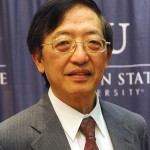
Pao-Chiang Yuan, Ph.D.
Professor, Department of Industrial Systems and Technology, College of Science, Engineering and Technology
Yuan’s research interests include the reduction of electronic waste in the waste stream, GIS applications and groundwater modeling, emergency management, and the promotion of public awareness of the need for recycling. Yuan is the project director and principal investigator of the JSU-Hinds County-Mississippi Department of Environmental Quality Computer Recycling Program, which has received multiple awards including the U.S. Environmental Protection Agency (EPA) Waste-Wise Program designation. In 2009, the Association of Technology Management and Applied Engineering (ATMAE) named Yuan as its Outstanding Professor of the Year. The U.S. Department of Homeland Security and the EPA have funded his projects.



